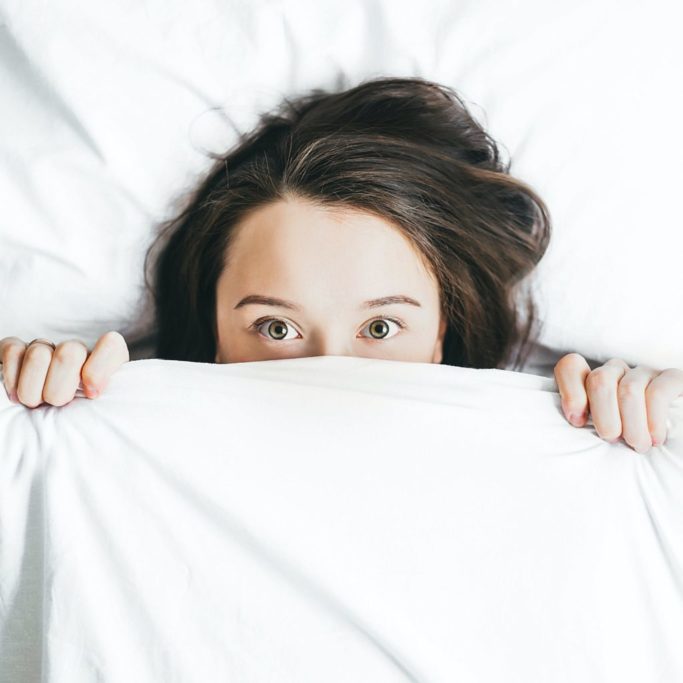We know sleep is important. We also know that the last year has impacted our sleep habits, maybe for the better or maybe for worse. Between limiting stressors and maintaining as much of a routine as possible, there are things you can do to ensure you're catching as much shut-eye as possible. Dr. Katherine Green explains below...
Katherine Green, MD, MS, assistant professor of otolaryngology at the University of Colorado School of Medicine and medical director of the UCHealth Sleep Medicine Clinic, knows how important sleep is to our overall well-being. She also knows that the stresses of the past year — the COVID-19 pandemic, social and political unrest — have had detrimental effects on our sleep.
In a recent interview, Green talks about why sleep is so important and how stress can affect it, especially in a pandemic
Q: Why is sleep so important to our health?
A: There are a lot of processes that happen during sleep that are important for your body’s underlying physiology and general health. Sleep serves as a restorative period for our body. It’s a period of rest for organs like the heart and the brain. There have been multiple studies showing the downstream effect of both insufficient sleep time — not getting enough sleep — and insufficient sleep quality. There are studies linking poor sleep to worsened immune function, underlying mood disorders or exacerbation of things like anxiety and depression. There have been lots of studies linking poor sleep quality to downstream health effects on metabolism or cardiac health and effects on mental cognition — focus, attentiveness, reaction time, judgement, and general mood and well-being. The effects are pretty wide-reaching.
Q: We have been going through an extremely stressful time over the past year, between the pandemic and political and civil unrest. What does that do to our sleep?
A: The effects of stress on sleep are not insignificant. It’s a feedback loop. Poor sleep increases stress, but we also know that situational stress and anxiety are the main contributors to insomnia and poor sleep quality. Anxiety or stress during the day make it harder to shut the brain down and fall asleep easily at night, and they actually may impact the quality of sleep that we get overall.
Q: Is it helpful to decrease your exposure to those stressors, then? Is it best not to watch the news?
A: It’s a balance. I’ve had some people tell me, “I know I shouldn’t watch the news, but if I’m not tuning in, then I’m worried that I’m missing something.” What’s important is recognizing those effects of anxiety and stress and having a way to deal with it and disconnect from it prior to bedtime. I talk a lot to my patients about the sanctity of a bedtime routine — having as much of a set bedtime and waketime as possible. As our schedules have become a little bit more erratic with people working from home, we have lost some of the daily routine that keep those bedtime habits regular. We have such a 24-hour society these days, and smartphones and constant electronics within reach make it harder. It’s important to be that much more intentional about setting aside a time to disconnect.
Q: How long before bedtime should you turn those electronics off?
A: Having an hour or so before bedtime as a disconnect time is ideal, but I tell patients to try and be strict with at least a 30-minute time before bed where you give yourself that time to wind down, to be free of electronics. The light from those electronic is in part what can really disrupt sleep quality. Blue light from electronics is one of the single greatest things that inhibits your body’s production of melatonin, which is the hormone that helps your brain and your body know when it’s time to go to sleep and helps the body stay asleep throughout the night.
Q: What about waking up? Is there anything you can do when you wake up that helps with sleep?
A: The biggest thing about a wakeup routine is trying to maintain a wakeup time every day that is fairly similar. It’s that wake time in the morning that tends to keep your circadian rhythm most regular. Also, getting natural light exposure first thing in the morning, particularly within an hour or so of waking up, is one of those things that helps your circadian rhythm, your internal body clock, set itself.
Q: Is there anything else you recommend people do to get better sleep?
A: It is helpful to avoid caffeine after 1 or 2 in the afternoon. If you have your morning cup of coffee, that’s great, but caffeine in the afternoon is going to tend to impact your ability to fall asleep at night. Same thing goes for taking naps in the late afternoon. Naps have their place and for some people can be very restorative but try to minimize napping time to a maximum of 30 to 45 minutes and keep those naps earlier in the day so they’re not going to intrude on your ability to fall asleep in the evening. The other thing that has many negative impacts on sleep quality is alcohol. Alcohol tends to impact what we call sleep architecture — the type of sleep you’re getting at night. Trying to avoid alcohol within a couple of hours of bedtime is another healthy sleep tip we talk a lot about.
Photo by Alexandra Gorn on Unsplash
